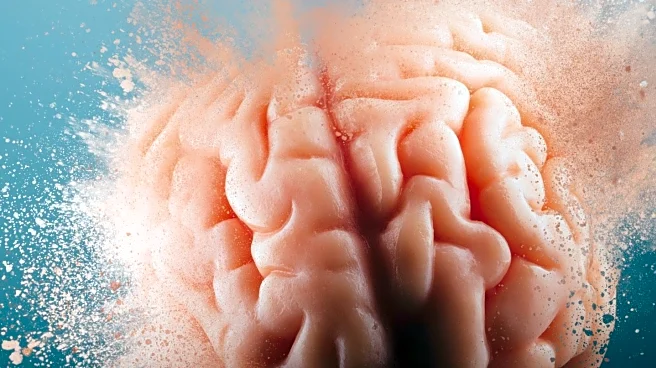What is the story about?
What's Happening?
Researchers at Yokohama City University have discovered a significant increase in the density of AMPA receptors (AMPARs) in the brains of patients suffering from Long COVID, a condition characterized by persistent cognitive impairment known as 'brain fog'. This study involved comparing imaging data from 30 Long COVID patients to 80 healthy individuals, revealing a correlation between elevated AMPAR density and the severity of cognitive symptoms. Additionally, inflammatory markers were found to be associated with AMPAR levels, suggesting a link between inflammation and neurological symptoms.
Why It's Important?
The findings provide a biological explanation for the cognitive symptoms associated with Long COVID, potentially paving the way for targeted treatments. Understanding the molecular basis of brain fog could lead to the development of therapies that suppress AMPAR activity, offering relief to millions affected by Long COVID. This research highlights the need for continued investigation into the long-term effects of COVID-19, which remains a significant public health challenge.
What's Next?
Further research is needed to develop diagnostic tools and effective therapies for Long COVID. The study's imaging technology could be used to distinguish Long COVID patients from healthy individuals, aiding in diagnosis and treatment planning. The healthcare industry may accelerate efforts to address this condition, recognizing it as a legitimate clinical issue.















